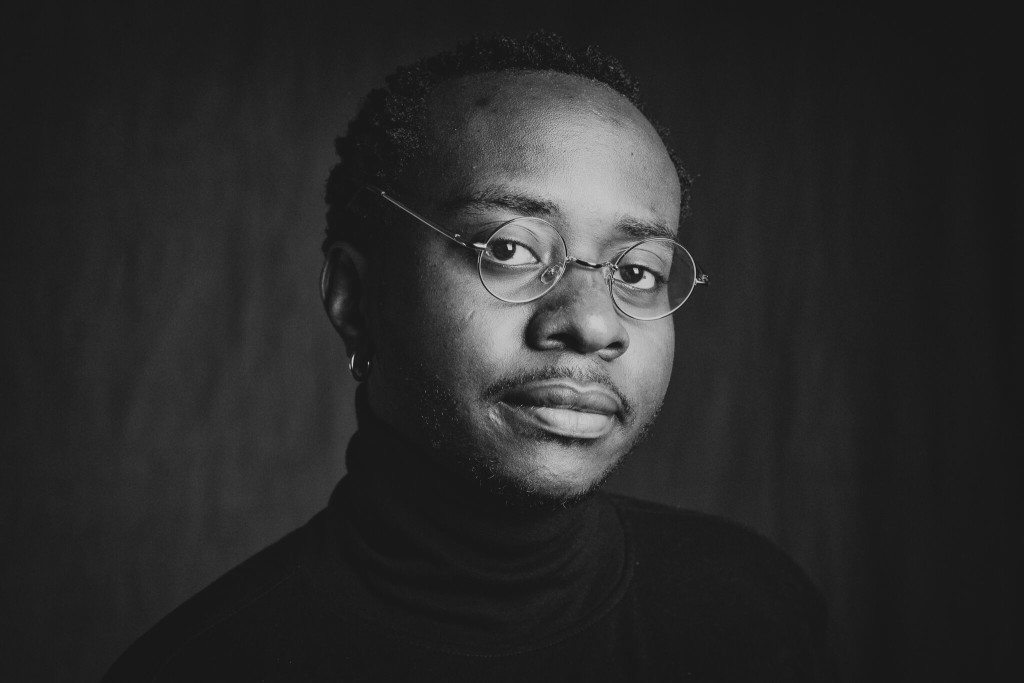Cheswayo Mphanza was born in Lusaka, Zambia, and raised in Chicago, Ill. He earned a B.A. in English from Middlebury College. His work has been featured in or is forthcoming from New England Review, Vinyl, Prairie Schooner, Hayden’s Ferry Review, and RHINO. He has received fellowships from the Bread Loaf Writers Conference, Callaloo, Columbia University, and Cave Canem. He is an MFA candidate in poetry at Rutgers-Newark.
Q&A
Why do you write?
I think as an immigrant so much of my narrative is about desiring a sense of connectedness. When I think about the themes, ideas, or concerns that come up in my writing, I notice that all my writing is trying to seek out others whose narratives are about displacement and identity re/formation. I write because I am simply reaching out.
What is your writing process?
I needed someone to explain to me that everything you are doing is “writing.” Meaning how much are you engaging with things, people, events that are contributing to your creative process in order to produce work. I try to read at least 2-3 books a day, attend museums, workout, take a walk, go to poetry and fiction readings, and so forth. As long as I am engaged with any type of space that is grounded around the production and value of art, I am constantly in a state of writing that translates to what I put on the page.
Major influences when writing?
I am influenced by music a lot— specifically hip-hop, jazz, and afro-beats/pop. There is a certain braggadocio, euphoria, and vulnerability in all those genres that contribute to my writing. I am always listening or dancing to something. I have to move myself, which is my own act of vulnerability, before I can become vulnerable on the page.
Who is your go-to author? Meaning what do you like to read in your free time?
As far as a go-to author, I would say that I go to Gwendolyn Brooks, Terrance Hayes, A. Van Jordan, Anne Sexton, Li-Young Lee, and so many others. I go to them not in the sense of reading, but as in I have internalized their poetics and aesthetics to the point where they are always on my mind within my creative process. In my free time, I am reading everybody. I guess it goes back to the idea of connectedness. I want to know everybody’s perspective based on how geography, race, gender, class, sexuality, etc. has influenced their writing.
What literary genre do you gravitate towards the most and why?
I am a sucker for nonfiction— specifically in personal essay writing. I am intrigued by how people curate their personal lives through writing. Or at least the performance of a life curated. With poetry or fiction, even though the lyric “I” is often conflated to the personal “I,” the creative aspect of writing can more or less coat the candid from its bareness. With nonfiction, truth is the art.
What is some of the best advice you have received in regards to your writing?
“There are no prodigies in this— you have to work hard.”
Do you have any advice for other student writers?
As I was told, “Read everything you can at least once. Read the stuff that excites you at least twice.”
Interview conducted by Jazmyn Jackson.
On Composing
By Cheswayo Gabriel Mphanza
I love the sound of ripping flesh;
the bullet’s precision and shattering
of bones. I believe blood is the body’s
music and I am in love with music;
its musings and moorings. O
for a muse of fire to boil the body
and suffocate all the unabashed
scores inside, begging for release
outside the body’s muffled bass
and susurrating murmurs, longing
to be heard beyond the veil
of flesh and its catalogued cartilage.
I want to be in the music and live
in the misanthropic liquids
of sound and its tainted harmonies.
I know there are those who know
the memories music conjures
with its grooves and vibrating
patterns, thrusting the uncensored
cadences of the mouth.
Night is a crimson stage, but I play
my best music in the folds
of sunlight; wicked compositions
made by mad men who too
desire to chill in blood,
nefarious orchestras
seizing the body;
horns warming
the music that pours when skin
gives up its wailing to the flesh
underneath, seeping and leaking
into notes menaces live by. Sometimes
I do not wish to see daybreak; I die
in the light. I prefer to wade
in shadows, preying and praying
for nightfall when I can record
my burgeoning symphonies,
tapping bodies to hear the singeing
chords of music hooked deep
into the marrows of bones.

